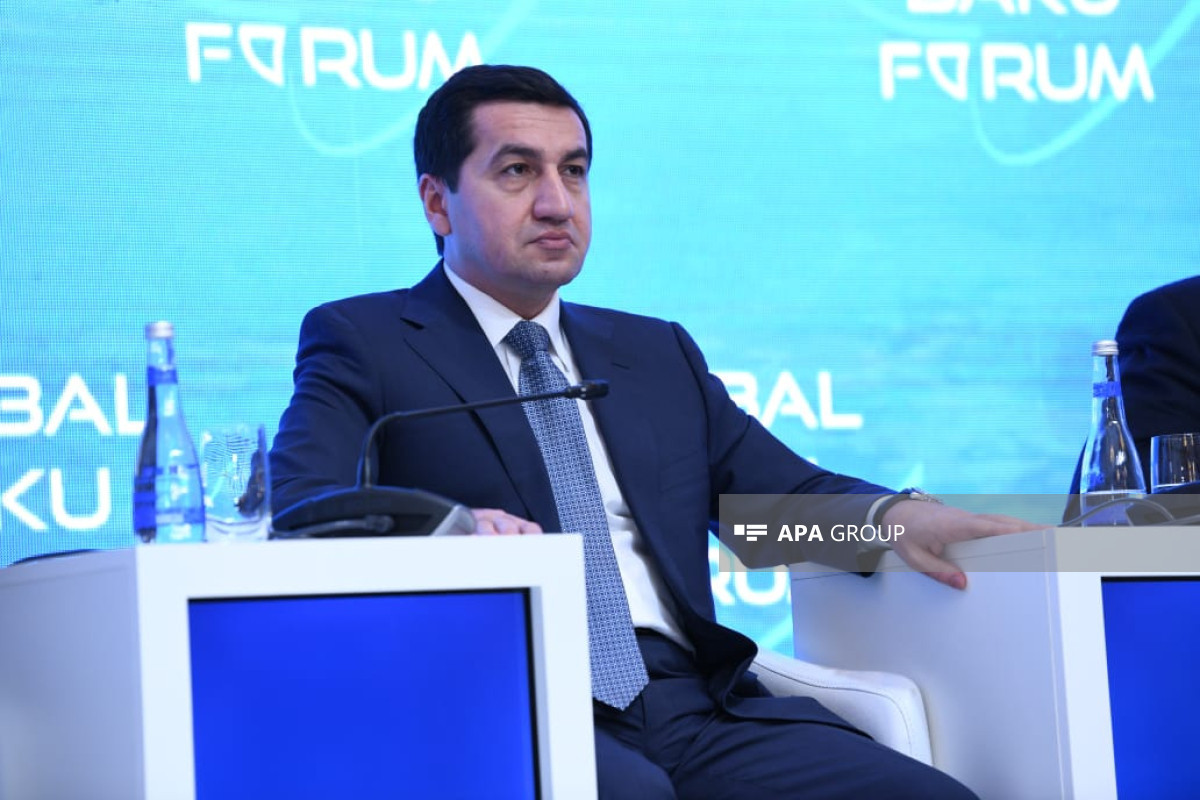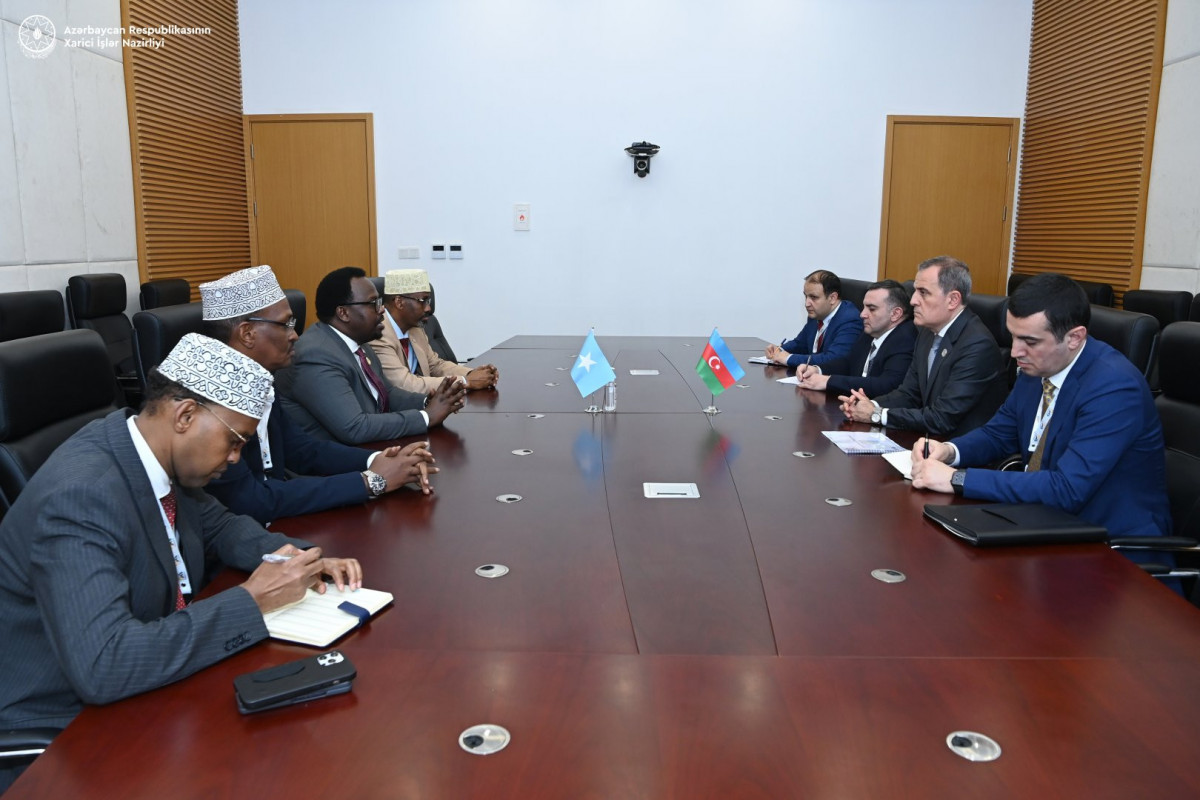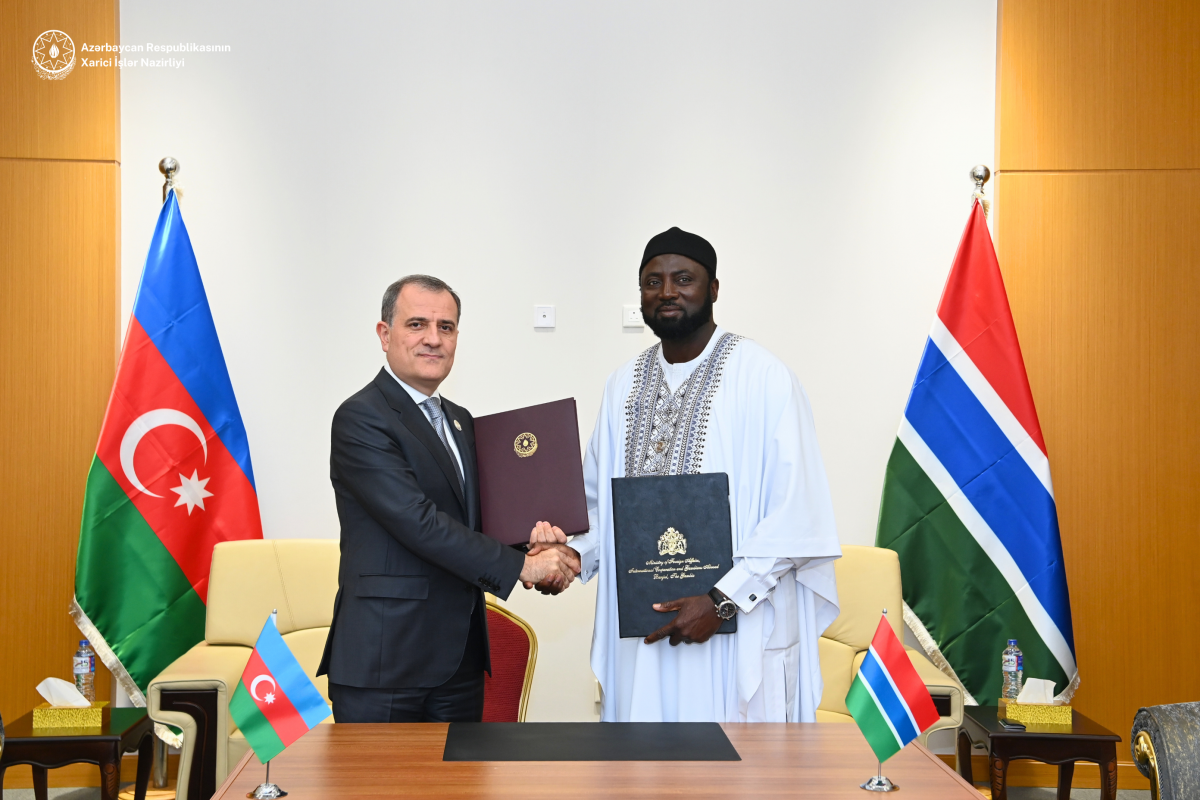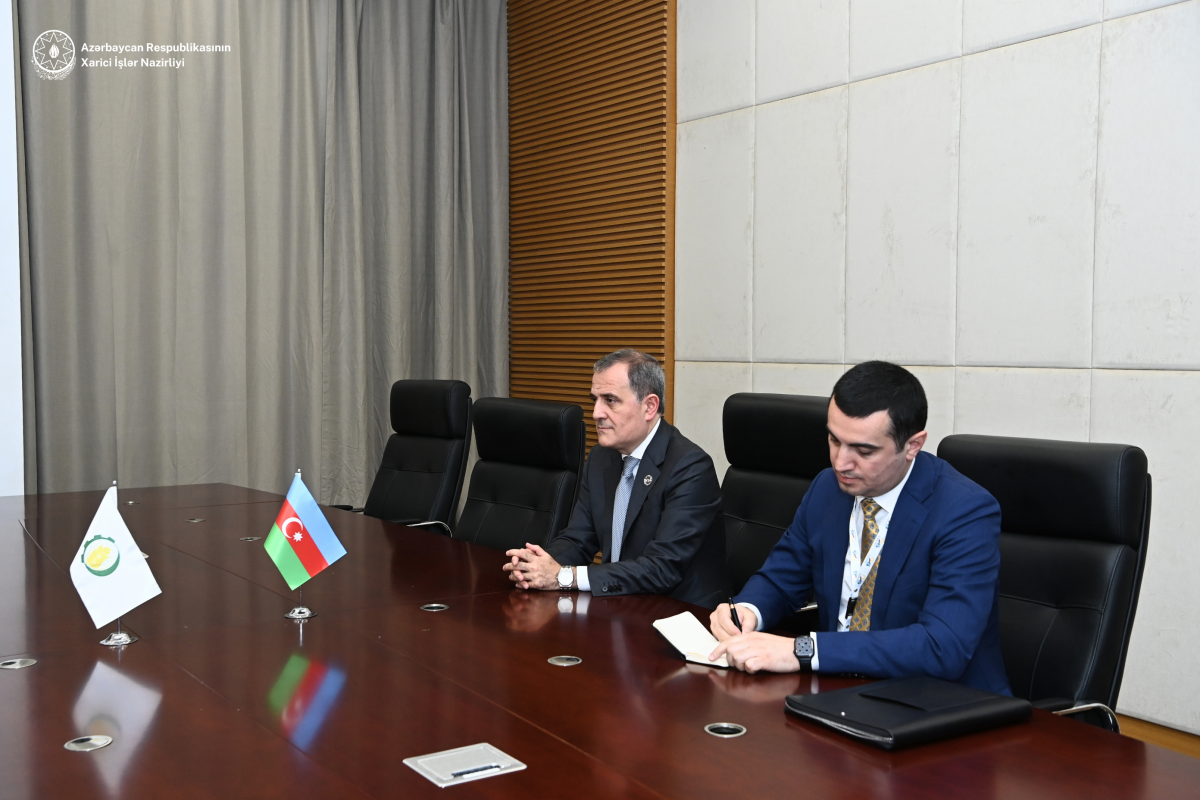3 main interests in anti-Azerbaijan campaign - ANALYSIS

The Greek ambassador’s misleading letter to his country’s foreign ministry, the European Union and its Baku office calling on the leaders of different countries and their embassies in Azerbaijan not to join the opening of the first-ever European Games, the European Parliament’s discussions, calls for boycott on social media, spread of anti-Azerbaijan campaign through fake profiles…The long anticipated process is now underway. The anti-Azerbaijan campaign just on the eve of the European Games has entered a new stage. Details of the process are clear cut. However, the question “why?” still needs explanations.
The anti-Azerbaijan campaign stands to reason: The European Games will earn our country not only economic benefits but also great political dividends. Anti-Azerbaijan forces in the West perhaps now understands possible political dividends the European Games are going to bring to our country even better than an ordinary Azerbaijani. The biggest dividend, no doubt, will be the destruction of the Anti-Azerbaijan image the western media has been trying to form on a continuous basis and purposefully. The European Games will be broadcast in more than a hundred countries, which provide to Europeans insight into the economic development, culture, nature, and people of Azerbaijan. So they will find out that negative image created by the west to be in full contrast with the reality. Most importantly, the western media will have difficulty painting a negative picture of Azerbaijan in the eyes of an ordinary European after the European Games. In other words, the Baku-2015 European Games will mean the bankruptcy of one of the well-budgeted projects of those forces in the West. The launch of a total campaign against Azerbaijan on the eve of the Games is also intended to save this project for the West. Because this campaign is the last chance for anti-Azerbaijan forces, all resources, from social media to diplomatic circles and from NGOs to political institutions, are involved in the process. Calls for boycott on social media 10 days before the European Games, dissemination of these calls by local pro-US NGOs and political parties, and anti-Azerbaijan statements by some western political circles are part of this process. It was predictable anyway; APA information agency had disclosed the plan and the most trivial details of this anti-Azerbaijan campaign.
What is the underlying reason? Why would the West possible need to form a negative image of Azerbaijan, the image of an eastern country “far from democratic values”? Why this issue has become so important for the West? These questions can be answered with questions – Why the West did not use to launch such anti-Azerbaijan campaigns before and why it has intensified these efforts over the last two years?
What has changed is political interest of the West, especially some European circles. The well-balanced foreign policy of Azerbaijan does not correspond to the West’s strategy about Russia, the South Caucasus, and Iran. Such a multidirectional political policy enables Azerbaijan to build equal relations with Iran, Russia, and Europe at the same time. The United States has serious problems with Iran over the latter’s nuclear program, and with Russian over the Ukrainian conflict, imposing sanctions on both countries on behalf of a coalition formed against these countries. However, despite all these efforts, Azerbaijan has not joined this coalition. Quite the contrary, Azerbaijan’s growing economic-trade relations with both Iran and Russia are alleviating the effect of the sanctions imposed on these countries.
To the United States, desiring to create a unipolar world, it is inadmissible. The West well understands that Azerbaijan’s active participation in the coalition against Iran and Russia would make pressures on the two countries even more effective. But they have missed one point – Azerbaijan defines its foreign policy independently, and when doing so it prioritizes its own interests rather than those of the West, Russia, Iran, or any other state. That’s what the West and Azerbaijan do not share in common. Instead of accepting the realities, the West approaches the problem from the angle “Big power-small power”, trying every opportunity to pressure Azerbaijan.
Wars in the modern world are waged with weapons but brains and information. One of the primary missions of any country is to form a good view of itself, its policy, culture and history. This factor plays a key role in serving the country’s political interests and in the growth of economic revenues. Foreign investors first calculate risks before investing in the economy of a country. When calculating risks, they also take into account issues like the country’s stability, tolerance, level of literacy, history, ethnicity, culture, etc., apart from potential economic benefits the project could produce. For this reason, every country promotes itself around the world, expending large amounts of funds in this direction. One of the main political tools enemy or rival countries use against each other in their struggle is to minimize the promotional activities conducted by its rival and to vilify the opposite side. Major sports events like the European Games are a good opportunity for Azerbaijan to form an unbiased opinion of itself in the world. There are forces that have long tried to destroy the promotional activities Azerbaijan has been engaging in Europe itself, and now those same forces, driven by political and economic interests, are trying to cut back on the possible promotional advantage Azerbaijan would obtained from the European Games.
The third reason is some countries have joined the anti-Azerbaijan campaign solely for meeting their own economic interests. The misleading letter sent by the Greek ambassador to Azerbaijan Dimitrios Tsoungas to the countyr’s foreign ministry to call on Greek President Prokopis Pavlopulos not to attend the opening of the European Games stem from economic factors. Greece is undergoing a difficult economic crisis and it deems privatization in the energy sector as the only way out of this problem. Azerbaijan too is involved in this process. SOCAR is the winner of a tender on obtaining 66 percent of the stocks of Greek operator DESFA in December 2013. Afterwards, however, obstacles were created in order to prevent SOCAR from privatizing DESFA due to political changes and the crisis at that time. The Greek government denounces previous terms for the sale of DESFA in order to get a higher amount of funds from Azerbaijan. And Azerbaijan demands the tender’s terms are fulfilled. And Greece is trying to use few opportunities in its hands in order to meet its own interests. One of them is the method mentioned above – to minimize possible dividends Azerbaijan is going to gain from the European Games. The interesting side of this issue is that on one hand Greece have problems with Europe, turn its back on Europe, threaten Europe with sending an immigrant army, and on the other hand sides with the European Union in the anti-Azerbaijan campaign, using the Azerbaijan factor to give the message “I’m your friend, not enemy” to Europe. As can be seen, the issue is not “lack of democratic values in Azerbaijan” as stated by some circles; the issue is that Greece intends to sell its gas operator at a higher price to Azerbaijan.
As can be seen, the reasons behind the anti-Azerbaijan campaign are different, so are the methods being used. It’s predictable that the campaign will prove ineffective. Because the campaign against the European Games are losing its effect as the Games are approaching.
Foreign

Cop29 summit to call for peace between warring states, says host Azerbaijan

Azerbaijani FM meets with Deputy Prime Minister of Somalia

Azerbaijan, Gambia abolish visa regime for diplomatic passport holders


